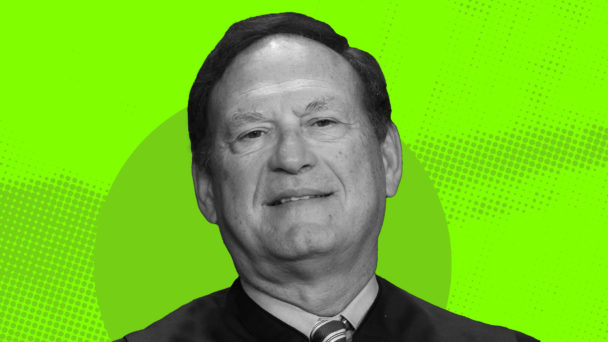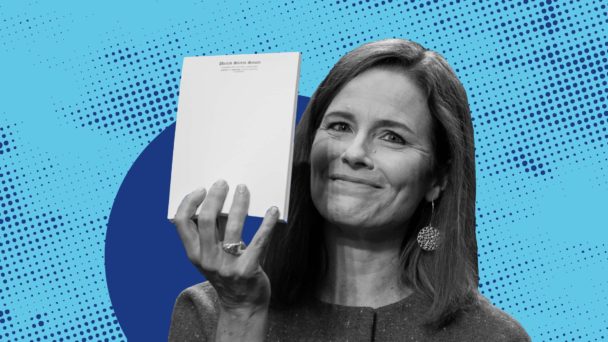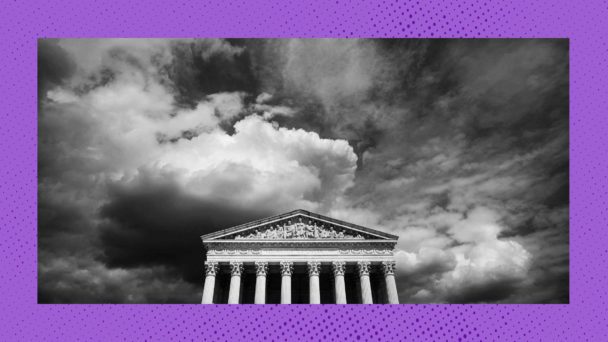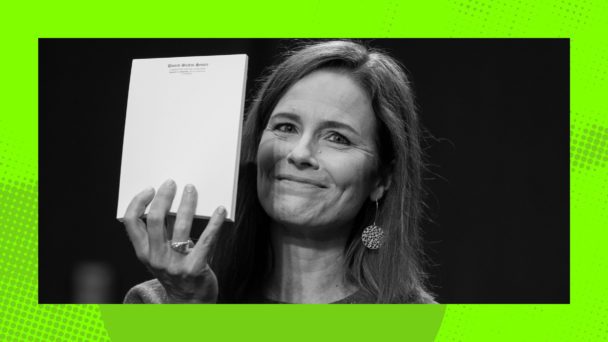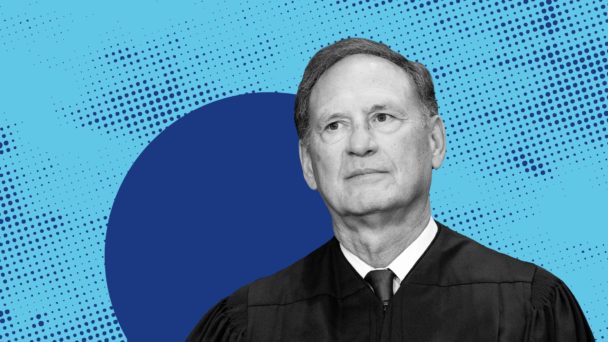On Wednesday, the Supreme Court issued its decision in Murthy v. Missouri, a case about whether the First Amendment affords the internet’s most obnoxious anti-vaccine conspiracy theorists a constitutional right to post. The majority opinion, written by Justice Amy Coney Barrett and joined by Chief Justice John Roberts, Justice Brett Kavanaugh, and the three liberals, more or less concludes that the case is a big dumb waste of the Court’s time, disposing of it on technical grounds and in short order.
The dissenting opinion, written by Justice Samuel Alito and joined by Justices Clarence Thomas and Neil Gorsuch, is a bingo card of right-wing grievances, railing with equal vigor against a Democratic president’s dastardly impositions on free speech and the Supreme Court’s unconscionable decision not to put a stop to it. The opinion is the work product of a Newsmax-pilled grandpa who, in the era of a six-justice conservative supermajority, has clearly grown accustomed to getting his way—and who figured that if he wasn’t going to win this time, he would at least get some shit off his chest in the process.
The petitioners in Murthy are a grab bag of aggressively online weirdos who are upset that in recent years, platforms like Facebook and Twitter blocked the publication of election- and pandemic-related misinformation. While plotting their revenge, they settled on a common enemy: the Biden administration, whose officials were conferring with tech giants during this fraught period in an effort to, again, prevent this country’s most credulous Boomers from dying because they saw a YouTube video about how getting the Pfizer shot was guaranteed to trigger spontaneous combustion. Although the government of course had no control over Facebook’s moderation decisions, the petitioners argued that the White House’s application of pressure to the social media companies—a practice known as jawboning—transformed the removal of misinformation into state action, thus implicating the First Amendment.
The ultraconservative Fifth Circuit Court of Appeals, as the ultraconservative Fifth Circuit Court of Appeals tends to do, took these claims very seriously, issuing a cartoonishly vague injunction that barred the Biden administration from having any contact with social media companies that, in the estimation of the Fifth Circuit, was too coercive to be legal. Nothing illustrates the conservative legal movement’s commitment to judicial incrementalism quite like three Republican judges deciding whom the White House can and cannot talk to.
Barrett’s opinion, however, does not reach the substance of the petitioners’ case. Instead, she finds that they lack standing—the right to bring a lawsuit in the first place. Whatever conversations the White House and Facebook may have had with one another, Barrett argues that the causal connection between those conversations and the specific acts of purported censorship is tenuous at best. In particular, Barrett notes that tech companies had their own business reasons for deleting anti-vax horseshit—my words, not Barrett’s—and in fact often did so before any incidental talks with the White House on the same subject.
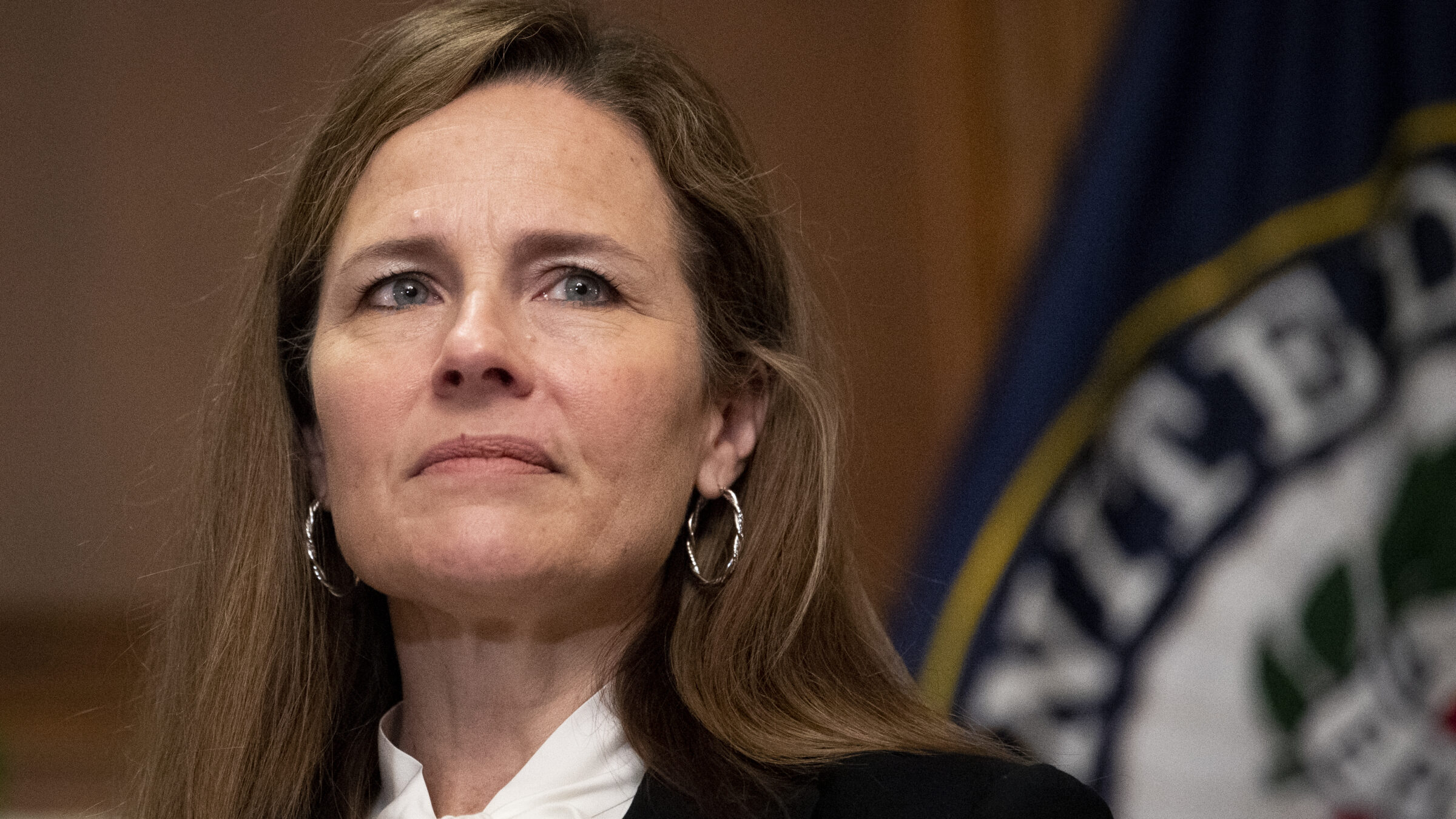
Photo by Caroline Brehman- Pool/Getty Images)
On occasion, Barrett sounds annoyed by the stunts the lower courts tried to pull in this case; in a footnote, for example, she refers to the district court’s findings as “unfortunately…clearly erroneous,” which is about as close as a federal judge gets to scolding another federal judge for entertaining brain-dead conspiracy theories in the pages of the federal reporter. But in light of the absence of a sufficiently “concrete link” between the government’s actions and the alleged injuries, Barrett concludes, the Court can resolve the case without examining those injuries any further.
Alito did not feel similarly constrained. The bulk of his dissent, which runs a few pages longer than the majority opinion, is concerned less with legal doctrine and more with exhaustively detailing the evils of the Biden administration for future generations of groyper law school graduates. He characterizes the White House as “browbeating,” “chastising,” and “interrogating” social media companies, engaging in a “covert scheme of censorship” in which it applied “unrelenting pressure…to suppress Americans’ free speech.” He describes the case as “one of the most important free speech cases to reach this Court in years,” and laments his colleagues’ choice to ignore the plight of “victims” who “simply wanted to speak out on a question of the utmost public importance.”
Like most conservatives, Alito cannot decide exactly where the social media companies fit in his little heroes-and-villains framework; like most conservatives, this does not dull his appetite for being upset. At times, Alito expresses sympathy for Facebook, which found itself at the mercy of a tyrannical federal government. At others, he castigates the social media companies for their cowardice, describing Facebook as “whimpering,” “pleading,” and “a subservient entity determined to stay in the good graces of a powerful taskmaster.” He is especially incensed by Facebook’s failure to conduct itself like an “independent news source or a journalistic entity dedicated to holding the Government accountable for his actions,” which raises the distressing possibility that Alito has no idea what Facebook is or how it works.
The balance of the opinion proceeds in similar fashion, stuffed with references that are only meaningful to people steeped in the grimiest corners of the far-right internet. Alito name-checks the lab leak theory, the Johnson & Johnson blood clot story, and nefarious quotes from various Jen Psaki press conferences. He analogizes the White House’s communications with Facebook about COVID-19 to death threats, which, he points out, “can be very effective even if they are not delivered every day.” He describes Jim Hoft, the publisher of a now-bankrupt right-wing blog that pushed out so many false stories that Google demonetized it altogether, as the “owner and operator of a news website.” This is roughly analogous to a 1968 UC Berkeley yearbook praising Ted Kaczynski as an accomplished mathematician with a bright academic future.
As G.S. Hans has written for Balls & Strikes, the conservative justices’ interest in protecting free speech these days strongly correlates with how much they agree with the speech at issue. And although Alito didn’t carry the day here, he remains a powerful voice for the interests of the furthest-right creeps this country has to offer. When it comes to cracking down on Big Tech censorship aided and abetted by Joe Biden (or vice versa), there is no standing argument he’d deem too specious or convoluted, because in Alito’s view, the victims of such plots are the people who need and deserve the judiciary’s protections. Everyone else can eat shit.

